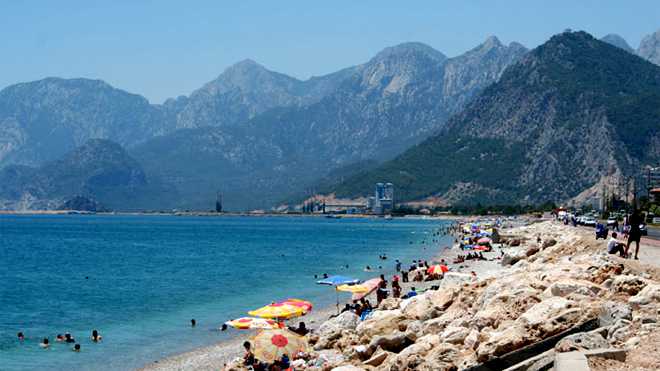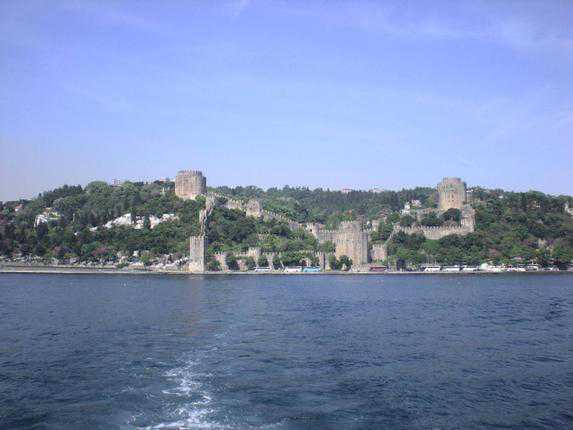By Ferruh Demirmen
Senator Barack Obama’s election as the next President of the U.S. has caused trepidation in many Turkish circles. How would his administration’s foreign policy toward Turkey be? Would Turkey’s relations with the U.S. improve or worsen? Indeed, there are perils on the horizon, but better times cannot be ruled out. The imponderables suggest that a “wait and see” stance is prudent.
Harsh Reality
On the potential downside, the Armenian question weighs heavily in U.S.-Turkey relations. Turks are understandably concerned that the Obama administration would recognize the so-called Armenian genocide. As most U.S. politicians who have been at the receiving end of generous campaign contributions from the Armenian lobby, Obama, as U.S. senator, supported Armenian genocide claims. He made this clear during Senate confirmation hearings of U.S. Ambassador-Designate to Armenia Richard Hoagland two years ago, and again early this year when he called for passage of Armenian genocide resolutions H.Res.106 & S.Res.106 in the Congress. He was influenced and counseled on this subject by none other than Samantha Power, an ardent proponent of Armenian “genocide.”
Samantha Power holds the dubious distinction of being a non-Armenian and a virulent Turk-hater at the same time. The loose-mouthed lady of supposed scholarly reputation disgraced herself last March when she called Senator Hillary Clinton a “monster.” She had to resign as adviser to Senator Obama. Not surprisingly, Armenian National Committee of America (ANCA) strongly endorsed (probably in violation of its 501(c)(3) tax-exempt status) Senator Obama’s candidacy.
The Armenian issue became more ominous for Turkey when Obama chose Senator Joe Biden as his running mate. As a U.S. senator and Chairman of the Senate Foreign Relations Committee, Biden gave support to all Armenian genocide claims since they first came to the U.S. Senate floor in 1990. Biden urged President Bush to use the word “genocide” in his proclamations, and was an enthusiastic sponsor of the Senate Armenian Genocide Resolution (S.Res.106) in 2006. In early 2008, Senator Biden renewed his call for Congressional recognition of the resolution, and in July of this year he reiterated his commitment to have Armenian “genocide” officially recognized by both the American and Turkish governments.
Also looming on the horizon is a Democrat-controlled Congress, with Nancy Pelosi as the House Speaker and John Kerry (unless appointed as the Secretary of State) at the helm of the Senate Foreign Relations Committee. The combination of Obama administration and a Democrat-controlled Congress augers a vexatious turn of events for Turkey as far as the Armenian issue. Armenia and the Armenian Diaspora will find that the confluence of events in their favor had never been better.
Of course, there will also be geostrategic issues to consider, and the Obama administration may have second thoughts about recognizing a trumped-up allegation that would further sour an already-fragile relationship between the U.S. and Turkey – caused mainly by Iraq war. According to a June 2008 poll, only 12 percent of Turkish people have a favorable view of the U.S. – a historic low. With Turkey’s proximity to Russia, the Middle East and Central Asia, and its strategic location as an energy corridor, it would seem myopic from U.S. national security point of view to further alienate Turkey.
In fact, just before the elections the Obama-Biden camp issued a foreign policy statement in which reference was made to strategic value of Turkey for U.S. interests. This suggests that Obama and Biden, as President and vice-President, might moderate their positions on Armenian “genocide.”
A most likely scenario is that the Obama administration would spurn the Armenian lobby’s efforts to recognize Armenian “genocide” while remaining passive to Congressional initiatives to pass such a resolution. This would give the administration a diplomatic “cover” – a poor one at that – to disassociate itself from the genocide controversy.
Disservice to History
Such turn of events would still be regrettable. Surprisingly, Turks are generally content if official declarations from foreign sources relating to 1915 events do not use the word “genocide.” Hence the sigh of relief when, on April 24 every year, the U.S. presidents issue a declaration commemorating the 1915 events without referring to “genocide.” Such declarations do disservice to history, however, and are nearly as condemnatory of Turks as the use of the word “genocide.” Turks should demand fairness and disclosure of full facts.
President Bush’s declarations, for example, have referred to “mass killings of as many as 1.5 million Armenians,” grossly exaggerating the number of Armenian victims. His declarations ignore the cause of the tragic events (Armenian rebellion) and the massacre of a half a million Moslems at the hands of armed Armenian gangs. Senator John McCain, while refraining from using the word “genocide,’ has taken a similar position on the Armenian issue. Such declarations imply that the sufferings and death of Moslems at the hand of Armenian gangs were somehow inconsequential.
Before issuing commemorative declarations on the 1915 events, it would behoove President-elect Obama – and the members of the Congress for that matter – to listen to such eminent scholars as Bernard Lewis, Turkkaya Ataov, Justin McCarthy and Eric Feigl – to name a few – and hear the other side of a controversial issue. A one-sided condemnation of historical events, no matter how-oft-recited by propaganda, and no matter how-well-wrapped in campaign contributions, does not serve history. Nor does it serve the cause of human rights. History cannot be re-created by legislative or executive fiat.
Equally important, it is long overdue for the Turkish government, and Turks in general, to be more proactive and aggressive in disseminating historical truth on the Armenian issue. If foreign politicians such as Obama and Biden, among others, have been misinformed on the subject, the Turkish government and Turks bear a good deal of responsibility. By default, the matter has been left pretty much to Armenia and the Armenian lobby to exploit. The dire consequences have been much too evident. Historians on the Armenian side do not even wish to debate with their Turkish counterparts.
Iraq War and Cyprus
The occupation of Iraq, spearheaded by neocon philosophy, has generated enormous tension between the U.S. and Turkey. The war has not only created violence and turmoil in a neighboring country, it also destroyed much of the bilateral trade (oil included) between Iraq and Turkey and seriously threatened the territorial integrity of Iraq. In this connection, Turks do not recall kindly the proposal made by Senator Biden in 2006 that Iraq be partitioned into three autonomous regions under a loose federation. His proposal was met with much disappointment in Turkey.
Turks also view with much suspicion President Bush’s cozy relation with Iraq’s Kurdish leaders, with Masoud Barzani, a tribal leader, being a frequent guest at the White House and treated like a head of state. Ironically, the relatively “peaceful” Kurdish autonomous region in northern Iraq is where the PKK terrorists have recently gained strength. Within the past few years PKK attacks against the Turkish territory have become more frequent and more daring. These events have raised doubts in Turkey about the sincerity of President Bush to fight terrorism when terrorists do their dirty deed under the banner of PKK.
Many in Turkish circles wonder whether the Bush administration is harboring clandestine intentions involving an independent Kurdistan at the expense of the territorial integrity of Turkey. Some have gone so far as suggesting that eventually the U.S. may have to make a choice between the Kurds and Turks.
Such suspicions, if unchecked, could tear apart the long-held partnership between the U.S. and Turkey. Turkey’s membership in NATO could also be put on ice.
There are signs that the Obama administration would reverse this ominous trend. First, unlike Bush, who favors an open-ended withdrawal, Obama favors a quick (but orderly) withdrawal of U.S. troops from Iraq. Second, the pre-election foreign policy statement from the Obama-Biden camp, noting that the Bush administration’s intervention in Iraq had helped revive the PKK threat against Turkey, identified close relationship with Turkey as being in U.S. national interest. It was also noted that the Obama administration would lead a diplomatic effort to bring together Turkish and Iraqi Kurdish leaders to negotiate a comprehensive agreement that deals with the PKK threat, guaranteeing Turkey’s territorial integrity. These are very hopeful signs.
On Cyprus, Turks are somewhat apprehensive about the Obama administration’s stance. The concern arises from Biden’s close ties to the Greek and Greek-Cypriot lobbies, his support ,
as U.S. senator, of the 1974 U.S. weapons embargo against Turkey, and Obama referring to Turkish troop presence on the island as “occupation.” The pre-election policy statement from the Obama-Biden camp, however, also calls for a negotiated settlement on Cyprus based on the principle of a bi-zonal, bi-communal federation, giving hope for an unbiased approach.
In a broader context, Obama’s multilateralism and emphasis on diplomacy, as opposed to Bush’s unilateralism and saber rattling, would help regional stability and bolster U.S.-Turkey relations.
In summary, the Obama administration holds both perils and hopes for Turkey, and for U.S.-Turkey relationship. The imponderables abound, and a prudent stance is “wait and see.” But both countries should look forward to a closer partnership in a renewed spirit without the mistakes of the last eight years.
[email protected]






